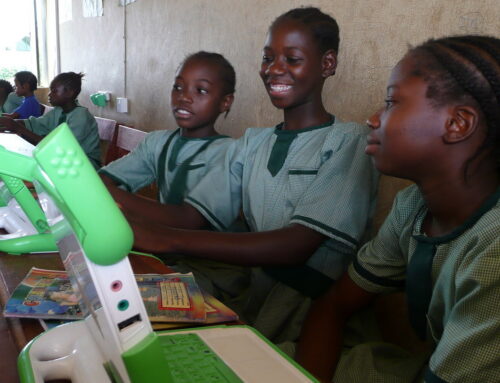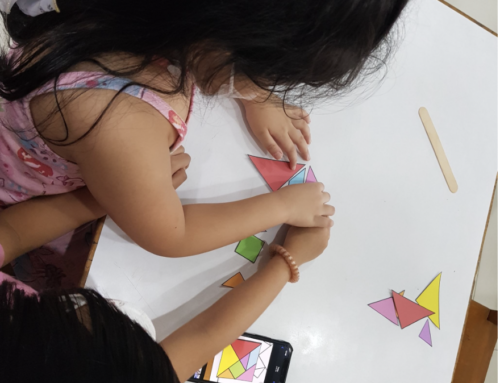Most of us will do anything to avoid feeling bored. This is particularly true of teenagers, which is why they’re the most active internet users worldwide. In this article Sara Monty uncovers new research showing that boredom is essential to children’s development and to their creativity, planning, problem-solving, flexibility, and ability to focus.
Boredom is often associated with feeling agitated and dissatisfied. But in today’s fast-paced society, there’s simply no time for that.
When we’re bored, we tend to seek out alternative activities to occupy our minds and prevent us from just being. The majority of people today have a smartphone in their pocket which means we’re never too far away from online stimulation or the next dopamine hit. So, it’s no wonder the internet has become the go-to cure for boredom.
Although this doesn’t sound like a pressing problem, boredom plays a significant role in our lives. This is particularly true for children growing up and learning to navigate emotions, situations and the world around them.
Why boredom is a good thing
Researchers at the Child Mind Institute suggest that boredom is essential for children to develop valuable skills like creativity, planning, problem-solving, flexibility, and organisation.
Being bored provides us with the space to make sense of our lives, and to allow our minds to wander and forge new ideas without relying on external stimuli to keep us distracted. Essentially, it helps young people learn how to tolerate not-so-fun experiences and prepares them for what’s to come later on in life.
The basis of our ability to pay attention forms in childhood
In today’s digital age, electronic media pervades modern life for people of all ages. These devices facilitate entertainment, communication and education. However, the ubiquitous nature of the internet and subsequent reduced periods of free-thinking (‘boredom’) can lead to difficulties with attention later in life.
The cognitive development of attention in children is related to how they perform in activities inside and outside of school. Although interaction with technology is inevitable, research shows that increased screen time hinders this development and makes it more difficult for children to pay attention after screen exposure.
We live in a culture of distraction
In his book Stolen Focus, Johann Hari says we are collectively losing our ability to pay attention – but it isn’t necessarily all our fault. Our focus is actively being stolen from us by big tech companies that continue to pump out apps and features designed to keep us scrolling – and distracted – for as long – and as often – as possible. Apps, smartphones and other internet-connected devices are perfectly calibrated to provide continuous distraction.
Research shows that the average eight to 10-year-old spends almost 8 hours a day engaging with a variety of media. That figure increases to 11 hours per day for older children and teenagers. This means that young people spend more time online than they do in school. Approximately one in five children between the ages of five and seven in the UK own a phone, with that figure soaring to more than 50% in children aged eight to 11. Time spent online increases with age, with 97% of teens aged between 13-17 in the US using the internet daily and 46% using it constantly.
Over the last few decades, there has been a paradigm shift away from young people going outside and engaging in unstructured free play. Instead, young people are more likely to spend their free time online, whether that’s playing games, browsing the net or chatting to people on social media.
One of the most significant reflections of increased screen time and the culture of constant engagement is nature-deficit disorder, a term coined by Richard Louv in his book The Last Child in the Woods. An expanding body of scientific evidence suggests that spending more time indoors and less time outdoors contributes to diminished use of the senses, the development of attention difficulties, and a variety of other emotional and physical problems due to a mostly sedentary lifestyle.
So, how can we encourage young people to embrace boredom in a digital world designed to curtail it?
The importance of embracing boredom and engaging with technology mindfully
There’s no denying that things change, and young people today are inevitably going to spend more time online than we did ‘back in the day’. The internet and everything it provides access to is a powerful tool for education and entertainment, but we must ensure children engage with it mindfully.
Balancing screen time and free time is important for young people, but this is a challenging task for parents raising kids in a new digital world. However, they and other authority figures in a child’s life must consider how much time is being spent in the state of passive stimulation that the online world provides.
Embracing boredom (or finding more meaningful ways to manage it) is vital to a child’s development. Today, it’s impossible for young people to avoid the internet completely. However, there are ways to help children leverage all the benefits of the online world without it taking over their lives.
Five ways to support healthy cyber habits
- Ensure children are equipped with the essential life skills they need to be successful and safe online. Encourage critical thinking, problem-solving and knowing when they have spent enough time online so they can be mindful of their own habits.
- Limit screen time to ensure they have a balance of unstructured play, outdoor time and sufficient sleep. The World Health Organisation sets out some great guidelines to help with this.
- Help children to make good media choices when it comes to the type of content they consume online. If they’re bored and scrolling without intention, try to encourage them to engage in something else like a creative hobby or spending time outdoors, where an abundance of learning and experiences await.
- Encourage values of kindness, compassion and respect in all aspects of life – including online. The disinhibition effect of the internet means users often show less empathy and are more likely to be aggressive towards others. Teaching the importance of kindness and inclusivity can help ensure time spent online is safe and enjoyable.
- Stay involved in your child’s online life. It’s likely that as children grow up and technology continues to advance they’re going to spend more time online. Make sure you know what they’re doing and monitor time spent online while celebrating the internet as a positive tool for connection and learning.







Leave A Comment